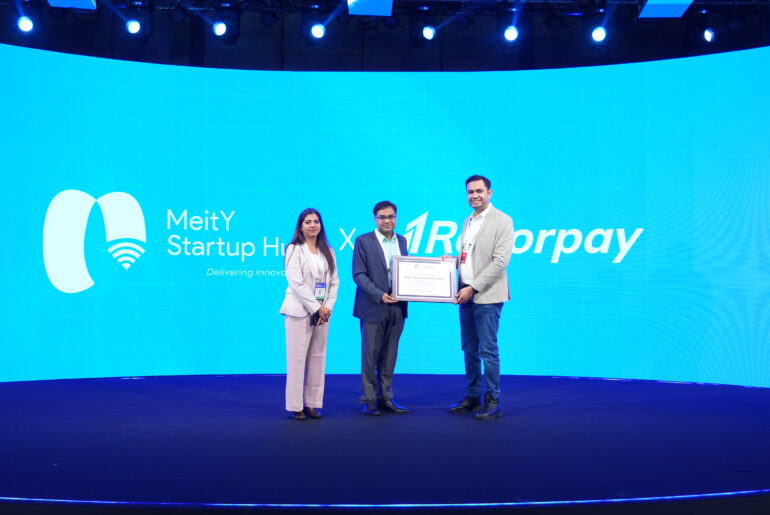- Digital Payments Rebound, see a 23% jump in last 30 days
- Stress in income has reduced consumer spending, Paylater & EMI become Preferred Payment Modes
Bengaluru – 6th July, 2020: Razorpay, the leading full-stack financial solutions company, launched a special report today, titled ‘101 Days of Covid-19 Era: Impact On Digital Payments’, as part of the sixth edition of The Era of Rising Fintech.
The report provides an in-depth study of an evolving FinTech ecosystem in a pandemic era. It analyses consumer behaviour and digital spending patterns during lockdown. It also provides comparative analysis of how different sectors and payment modes performed in the first 30 days of lockdown (March 24 – April 23) Vs the last 30 days of lockdown (June 3 – July 2).
It’s interesting to note that with the economy inching towards normalcy, digital payment transactions have rebounded by 23% in the last 30 days. The overall digital transactions declined by 12% in the last 101 days, compared to a 30% drop in the first 30 days of lockdown.
Let’s take a look at what the rest of the insights look like during the last 101 days. All findings in this report are based on transactions held on Razorpay platform between March 24 – July 2 (101 Days of lockdown).
101 Days Of Lockdown (March 24 – July 2)
- Online Education sector grew by 23% as extended lockdown has led to a massive rise in demand for online courses. Also Medical Services are picking up as online consultations & purchases have increased by 20%
- To ensure health and safety from Covid-19, Indians opted to stay indoors and paid bills online – this contributed to the growth of Utilities (Bill Payments) sector by 163%
- Locked up at home, people have turned to dating apps for companionship. Social isolation has also led to a surge in online counselling platforms to connect with mental health experts. The Social Engagement sector (Personal Counselling, Dating & Matrimony websites) has witnessed a 32% growth
- Karnataka (with 23%), Maharashtra (17%) and Telangana (11%) saw the highest contribution during the lockdown and Gujarat, Madhya Pradesh and Tamil Nadu dropped by 35%, 32% and 2% respectively
Last 30 Days of Lockdown (June 3 – July 2)
- With the economy reviving, sectors like Logistics (687%), Real Estate (496%), Healthcare (166%) are starting to see some normalcy. However, P2P Lending and Utilities declined by 41% & 13% respectively, as compared to first 30 days of lockdown
- Due to stress in income across households, consumer payment behaviour has changed. Paylater, Cardless-EMI & EMI have become preferred payment modes with a growth of 290%, 178% and 125% respectively
- When it came to payment methods UPI continued to be the preferred mode and grew by 43%, Cards by 40% and Netbanking by 10%
First 30 Days Of Lockdown
- During Lockdown, Online donations (transactions) towards NGOs increased by 180%, reflecting overwhelming support from citizens to help the affected
- As people stayed indoors, sectors such as Utilities, IT & Software and Media & Entertainment saw a growth of 73%, 32% and 25% respectively
- Lockdown led to decline in few sectors – Transactions in Logistics dropped by 96% due to gaps in supply chain. Travel sector declined by 87%, Real Estate by 83%, Food and Beverage (F&B) by 68%, and Grocery by 54%
- Mobile wallet transactions, particularly in tier-2 cities (via AmazonPay, JioMoney and Paytm) saw a spike, owing to increased contribution towards PM Cares Fund and cashback offers
Harshil Mathur, CEO and Co-founder, Razorpay said, “The digital payments industry couldn’t escape the pandemic crisis, we witnessed a dip of 30% in online payments since the lockdown began, and now seeing a rebound of 23% over the last 30 days is a sign of gradual revival of the digital economy. After witnessing an increased demand for digital payments in Tier 2 & 3 cities, I believe Covid-19 has definitely propelled the final push to overthrow cash, which even demonetisation couldn’t, as Indians now become more comfortable paying for services without cash.”
He added, “Covid-19 is forcing sectors to digitize as businesses can’t be closed for a long period of time and social distancing is here to stay, for the next 12 months at least. Small & medium businesses and consumers are beginning to realise the friction and frustration involved in handling cash after having experienced seamless digital payments. But for this to happen at scale, the government’s constant push to digitisation through necessary education, digital rewards and incentives may not be enough. It needs to be clubbed with intelligent innovations in financial transactions focussed on improving customer experience such as facial recognition technology, possibly wearables, hearables and implantables along with investment in business banking platforms (neo-banks), and then we could soon foresee a new Digital India. If fintech firms and banks re-examine their business models and choose to work together, I believe post this crisis we are likely to come out stronger.”
In the last six months, Razorpay has been expanding its horizons in payments and banking and solving new challenges for small & medium businesses in times such as these. In line with its neo-banking strategy, RazorpayX launched Current Accounts to support standard banking features like Debit Cards, Cash transfers, FD, RD and other treasury offerings, and Corporate Credit Cards to solve challenges around access to credit, short term credit, reconciliation, payroll management therefore helping businesses lead a healthy financial life. With a 500% growth in 2019, Razorpay expects a 4x growth in its volumes by the end of the next fiscal year.
On another note, while the world is hoping for a quick recovery from the current situation, Razorpay urges every individual and every company to comply with all precautions and measures to ensure the well-being of one and all.
About Razorpay Software Private Limited: Razorpay, the leading full-stack financial services company, helps Indian businesses with comprehensive and innovative solutions built over robust technology to address the entire length and breadth of the payment journey for any business. Established in 2014, the company provides technology payment solutions to over 1,000,000 businesses. Founded by alumni of IIT Roorkee, Shashank Kumar and Harshil Mathur, Razorpay is the second Indian company to be a part of Silicon Valley’s largest tech accelerator, Y Combinator. Marquee investors such as Tiger Global, Matrix Partners, Y Combinator, Sequoia India, Ribbit Capital and MasterCard have invested a total of $106.5 million through Series A, B and C funding. Around 33 angel investors have invested in Razorpay’s mission to simplify payments. Known to be a developer oriented payment gateway, Razorpay focuses on essentials such as 24×7 support, one-line integration code and superior checkout experiences.
For more information, please contact:
Hepsibah Rozario || hepsibah.rozario@razorpay.com || +91 8884913468
Vaneet Singh Sethi || vaneet.sethi@razorpay.com || + 91 7829881884
Aafia Feroze || aafia.feroze@adfactorspr.com || +91 9902491526
***



